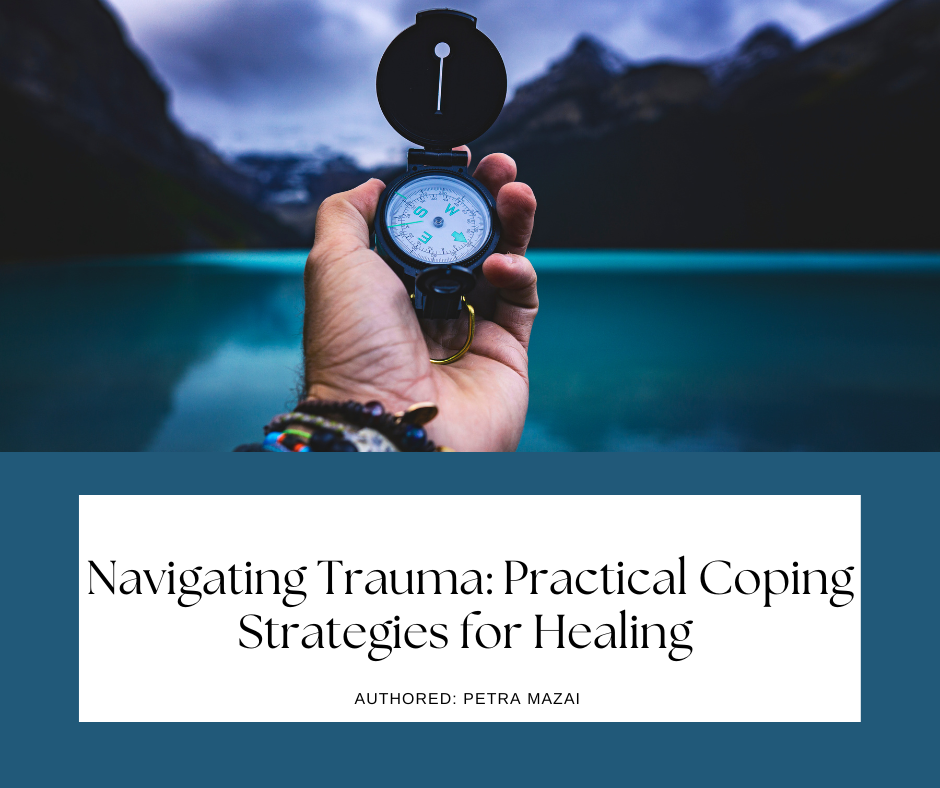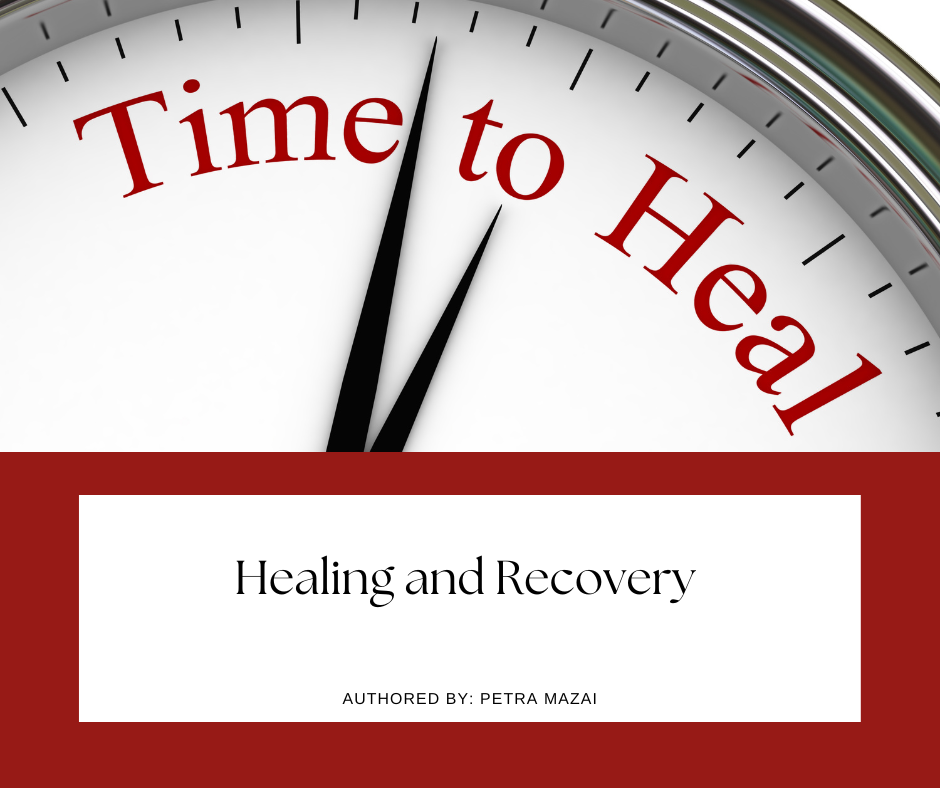Self-Care
Authored By: Petra Mazai 2023
Self-care is of paramount importance during the healing and recovery process for several reasons. When individuals are dealing with trauma, illness, or challenging life experiences, incorporating self-care practices can significantly contribute to their overall well-being and aid in the recovery journey. Here are some key reasons highlighting the importance of self-care during healing and recovery:
Promotes Physical Health:
Engaging in self-care activities such as regular exercise, a balanced diet, and adequate sleep supports physical health. Physical well-being is interconnected with mental and emotional health, contributing to a more robust recovery process.
Reduces Stress and Anxiety:
Self-care practices, including mindfulness, meditation, and relaxation techniques, can help reduce stress and anxiety levels. Lowering these stressors is crucial for optimal healing and recovery.
Enhances Emotional Well-Being:
Taking time for self-care contributes to emotional stability. It allows individuals to process emotions, build emotional resilience, and develop healthier coping mechanisms during challenging times.
Fosters Self-Compassion:
Self-care encourages individuals to treat themselves with kindness and compassion. This self-compassion is essential for navigating difficult emotions and setbacks, fostering a positive mindset during the recovery process.
Supports Mental Health:
Mental health is a critical component of overall well-being. Self-care activities, including therapy, counselling, and other mental health practices, provide essential support for individuals working through trauma or mental health challenges.
Builds Resilience:
Regular self-care contributes to the development of resilience. Resilience is the ability to bounce back from adversity, and it is a key factor in successful healing and recovery.
Boosts Self-Esteem:
Engaging in self-care activities that promote self-love and self-acceptance can positively impact self-esteem. Higher self-esteem is associated with better mental health outcomes and a more positive recovery experience.
Prevents Burnout:
The healing process can be demanding, and self-care helps prevent burnout by providing necessary breaks and moments of relaxation. Preventing burnout ensures sustained energy and focus throughout the recovery journey.
Encourages Healthy Coping Mechanisms:
Self-care promotes the adoption of healthy coping mechanisms. This is crucial for individuals who may have previously relied on unhealthy behaviours to cope with stress or trauma. Healthy coping strategies contribute to long-term recovery.
Strengthens Social Connections:
Self-care activities can include spending time with loved ones, fostering social connections, and seeking support. Strong social ties provide emotional support and a sense of belonging, which are vital during the healing process.
Empowers Individuals:
Engaging in self-care empowers individuals to take an active role in their healing and recovery. It fosters a sense of agency and control over one’s well-being, leading to a more positive and proactive approach to the recovery journey.
Self-care is not just a luxury but a critical component of the healing and recovery process. It provides the necessary foundation for individuals to navigate challenges, build resilience, and emerge from difficult experiences with a greater sense of well-being and strength. Continue taking care of yourselves!
Related Posts

Unveiling The Layers of Trauma
Unveiling the layers of trauma involves understanding the complex and multifaceted nature of traumatic experiences and their impact on …

Practical Coping Strategies for healing
Navigating trauma can be a challenging and complex process, and it’s essential to approach it with patience..

Healing and Recovery
Healing and recovery from trauma or challenging life experiences involve a holistic and ongoing process…